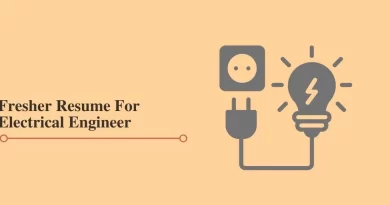The Importance of Continuing Education for Electrical Engineers
The Importance of Continuing Education for Electrical Engineers
Electrical engineering is a fascinating and rewarding field that offers many opportunities for innovation and problem-solving. Electrical engineers design, develop, test, and maintain various electrical devices, systems, and networks that serve multiple purposes and applications, such as power generation, transmission, distribution, communication, computing, automation, control, robotics, etc.
However, electrical engineering is also a field that requires constant learning and updating. Electrical engineering is a dynamic and evolving field encompassing various disciplines, technologies, standards, and challenges. Discoveries, methods, tools, and issues emerge every day, requiring electrical engineers to keep up with the latest trends and developments in their field. This is important for staying competitive and relevant in the market and enhancing their knowledge, skills, and creativity as engineers.
Continuing education is pursuing further education or training in one’s field or related fields after completing one’s formal education. Continuing education can take various forms and modes, such as:
- Traditional courses or programs offered by educational institutions or professional organizations
- Online courses or programs offered by different platforms or providers
- Workshops or seminars provided by experts or practitioners
- Webinars or podcasts offered by various sources or media
- Journals or magazines that publish peer-reviewed articles, reviews, news, etc.
- Books or ebooks that provide comprehensive information or insights
- Blogs or websites that provide informative or engaging content
- Forums or communities that provide interactive or collaborative learning
Continuing education can offer various benefits and advantages for electrical engineers, such as:
- Expanding their knowledge and skills by learning new things or improving existing things in their field or related fields
- Enhancing their reputation and credibility by showcasing their achievements, projects, publications, certifications, etc.
- Exploring new opportunities and challenges by finding out about the latest trends, developments, issues, etc., in their field or related fields
- Accessing valuable resources and support by getting referrals, recommendations, feedback, advice, etc., from other electrical engineers or experts
- Creating meaningful relationships and friendships by sharing their interests, passions, goals, etc., with electrical engineers or learners. However, Continuing education can also pose some challenges and difficulties for electrical engineers, such as:
- Finding the time and motivation to pursue continuing education while balancing their work and personal life.
- Finding the confidence and communication skills to pursue continuing education while overcoming their fears or doubts
- Finding access and exposure to relevant and diverse continuing education options while considering their preferences and availability
- Finding the strategy and direction to pursue continuing education effectively while evaluating their needs and outcomes. How can electrical engineers overcome these challenges and master the art of continuing education?
In this blog post, we will share tips and strategies to help electrical engineers pursue continuing education in their field. We will also recommend some of the best platforms and resources that electrical engineers can use to pursue continuing education in their field.

Tips and Strategies for Pursuing Continuing Education in Electrical Engineering
Here are some tips and strategies that can help electrical engineers pursue continuing education in electrical engineering:
- Define your goals: Before pursuing continuing education, you must define your goals and objectives. What do you want to achieve by pursuing continuing education? What kind of knowledge or skills do you want to acquire or improve? How can they help you advance your career or personal development? By defining your goals, you can focus your efforts and resources on the most relevant and beneficial continuing education options for you.
- Identify your options: After you define your goals, you need to identify your opportunities. What are the available forms and modes of continuing education that suit your preferences and availability? What are the sources and providers of continuing education that offer high-quality and relevant content and services? By identifying your options, you can compare and evaluate various continuing education alternatives and choose the best ones.
- Create your plan: After identifying your options, you must create your project. How will you pursue your chosen continuing education options? How will you manage your time, resources, and progress? How will you measure your results and feedback? Creating your plan allows you to organize and execute your continuing education activities effectively and efficiently.
- Leverage online platforms: One of the best ways to pursue continuing education in electrical engineering is to leverage online platforms that can help you access, learn, and interact with various forms and modes of continuing education in electrical engineering. Online platforms can offer multiple features and benefits, such as:
- Flexibility: You can pursue continuing education online at your own pace, time, and place, according to your convenience and availability. You can also choose from various online continuing education options that suit your preferences and needs.
- Affordability: You can pursue continuing education online at a lower cost or even for free, compared to traditional or offline continuing education options. You can also save on travel, accommodation, and other expenses that may be involved in offline continuing education options.
- Diversity: You can pursue continuing education online from a wide range of sources and providers that offer diverse and comprehensive content and services on various topics related to electrical engineering. You can also interact with a diverse global community of electrical engineers and learners who can offer different perspectives and insights on electrical engineering.
Quality: You can pursue continuing education online from high-quality and reputable sources and providers that offer credible and reliable content and services on electrical engineering. You can also access various online resources and tools to enhance your learning and performance in electrical engineering.
Some of the best online platforms for pursuing continuing education in electrical engineering are:
- Coursera: This is one of the most popular and comprehensive online platforms for pursuing continuing education in any field. Coursera offers various online courses and programs on multiple topics related to electrical engineering, such as Electrical Engineering Basics, Power Electronics, Embedded Systems, etc. Educational institutions and professional organizations, such as Stanford University, University of Colorado Boulder, IEEE, etc., offer Coursera courses and programs. Coursera courses and programs are self-paced and flexible, and you can earn certificates or degrees upon completion.
- edX: This is another popular and comprehensive online platform for pursuing continuing education in any field. edX offers various online courses and programs on multiple topics related to electrical engineering, such as Circuits and Electronics, Robotics, Wireless Communication, etc. edX courses and programs are offered by various educational institutions and professional organizations, such as MIT, Harvard University, IET, etc. edX courses and programs are self-paced and flexible, and you can earn certificates or degrees upon completion.
Frequently Asked Questions (FAQs)
1. Why is continuing education important for electrical engineers?
- Continuing education is crucial for staying updated with the latest technologies, industry trends, and regulations in the rapidly evolving field of electrical engineering.
2. What are the benefits of pursuing continuing education as an electrical engineer?
- Benefits include enhanced technical knowledge, improved career prospects, increased earning potential, and adaptability to changing industry demands.
3. What forms does continuing education for electrical engineers typically take?
- Continuing education can include formal courses, workshops, webinars, seminars, conferences, online learning platforms, and self-study.
4. Are there specific areas of specialization in continuing education for electrical engineers?
- Yes, continuing education can focus on areas like power systems, electronics, automation, renewable energy, and telecommunications.
5. How can electrical engineers find relevant continuing education opportunities?
- They can explore options through universities, professional organizations like IEEE, industry associations, online learning platforms, and local training providers.
6. Is continuing education required to maintain professional electrical engineer licensure?
- Electrical engineers must complete continuing education in many regions to renew their professional licenses.
7. Can electrical engineers earn professional certifications through continuing education?
- Yes, continuing education can help engineers prepare for and earn industry-specific certifications, enhancing their credentials.
8. How can electrical engineers balance work, personal life, and continuing education?
- Balancing these aspects requires effective time management, setting clear goals, and prioritizing learning as a career investment.
9. What role does lifelong learning play in the career of an electrical engineer?
- Lifelong learning is essential for electrical engineers to adapt to new technologies and emerging challenges throughout their careers.
10. Can employers benefit from supporting their engineers’ continuing education?
- Yes, employers benefit from having a highly skilled and knowledgeable workforce that can contribute to innovation and competitiveness.
11. Are there financial incentives for pursuing continuing education in electrical engineering?
- Some employers offer financial support or reimbursements for employees' continuing education expenses.
12. How can engineers track their continuing education progress and achievements?
- Engineers can maintain a record of courses attended, certificates earned, and skills acquired to showcase their commitment to professional development.
13. What are the consequences of neglecting continuing education in electrical engineering?
- Neglecting continuing education can lead to outdated skills, reduced competitiveness, and limited career advancement opportunities.
14. How can engineers leverage continuing education to advance their careers?
- They can use continuing education to specialize in a particular field, demonstrate their expertise, and pursue leadership roles in their organizations.
15. What is the future outlook for continuing education in electrical engineering?
- Continuing education will remain essential as technology continues to advance, and electrical engineers must adapt to meet new challenges and opportunities in the field.



